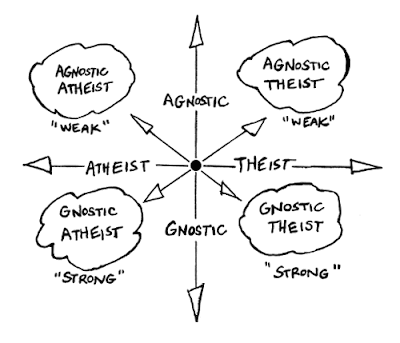Is Jesus God?
Is Jesus Really God?
Without a doubt, you have often heard the claim that Jesus is God, the second person in the "Holy Trinity," and is considered divine. However, the very Bible which is used as a basis for knowledge about Jesus, and as the basis for doctrine within Christianity, clearly belies this claim. Additionally, the belief that the Supreme Being is a Trinity is false and completely inconsistent with the words of Jesus as presented in the Bible. In fact, the entire concept is nowhere to be found in the Christian Bible.
1. God is All Knowing... but Jesus was not.
When speaking of the Day of Judgment, Jesus clearly gave evidence of a limitation on his knowledge when he said, "but of that day and hour knoweth no man, no, not the angels which are in Heaven, neither the son, but the Father." (Mark 13:32 and Matt 24:36) But God knows all. His knowledge is without any limitations. That Jesus, of his own admission, did not know when the Day of Judgment would be, is clear proof that Jesus is not all-knowing, and that Jesus is therefore not God.
2. God is All-Powerful... but Jesus was not.
While Jesus performed many miracles, he himself admitted that the power he had was not his own, but derived from God. He said, "Verily I say unto you, the Son can do nothing of himself, but what he seeth the Father do..." (John 5:19) Again he said, "I can of mine own self do nothing: As I hear I judge, and my judgment is just because I seek not mine own will but the will of the Father which has sent me." (John 5:30)
Notice that, according to the Bible, God is not only all-powerful, he is also the source of all power and authority. That Jesus, of his own admission, could do nothing on his own is clear proof that Jesus is not all-powerful, and that therefore Jesus is not God.
3. God has no gods... but Jesus did have a God.
God is the ultimate judge and refuge for all, and He does not call upon nor pray to any others. But Jesus acknowledged that there was one whom he worshiped and to whom he prayed when he said, "I ascend unto my Father and your Father, and to my God and your God." (John 20:17) He is also reported to have cried out while on the cross, "My God, my God, why hast thou forsaken me?" (Matt 27:46)
If Jesus were God, then couldn't this be read "Myself, myself, why hast thou forsaken me?" Would that not be pure nonsense? When Jesus prayed the Lord's prayer (Luke 11:2-4) was he praying to himself? When in the garden of Gethsemane he prayed, "O my Father, if it be possible, let this cup pass from me: Nevertheless, not as I will but as thou wilt." (Matt 26:36-39) Was Jesus praying to himself? That Jesus, of his own admission, and by his own actions, acknowledged, worshiped and prayed to another being as God, is clear proof that Jesus himself is not God.
4. According to the Bible, God remains eternally unseen... but Jesus was flesh and blood and seen by all.
While thousands saw Jesus and heard his voice, Jesus himself said that this could not be done with God when he said, " No man hath seen God at any time." (John 1:18) "Ye have neither heard His voice at any time nor seen His shape." (John 5:37) He also said in John 4:24, "God is a spirit and they that worship him must worship him in spirit and in truth." That Jesus would say that no one had seen or heard God ant any time, while his followers both saw and heard him, is clear proof that Jesus was not God.
5. No one is greater than God and no one can direct God... but Jesus acknowledged someone greater than himself whose will was distinct from himself, and could direct him with authority.
Perhaps the clearest indication we have that Jesus and God are not equal, and therefore not one and the same, come again from the mouth of Jesus himself who said in John 14:28, "My Father is greater than I."
When someone referred to Jesus as a "good master" in Luke 18:19, he responded, "Why callest thou me good? There is none good but one, that is God..."
Furthermore, Jesus drew clear distinctions between himself and God when he said, "I proceeded forth and came from God, neither came I of myself but He sent me." (John 8:42) Jesus gave clear evidence of his subordination to God, rather than his equality with God, when he said in Luke 22:42, "not my will but thine be done," and in John 5:30, "I seek not mine own will but the will of the Father which has sent me."
Conclusion
The very fact that Jesus would admit that he did not come into the world on his own initiative but was directed to do so, that he would acknowledge another being as greater than himself, and that he would negate his own will in deference to affirming the will of another, give clear proof that Jesus is not the Supreme One and therefore Jesus is not God.
The Church recognizes the Bible as the primary source of knowledge about God and Jesus. But since the Bible makes it clear that Jesus is not the Supreme Being and the Supreme Being is not Jesus, upon what basis have you come to believe otherwise?
(Paraphrased and adapted from the article collection of Dr. Amir Ali)

